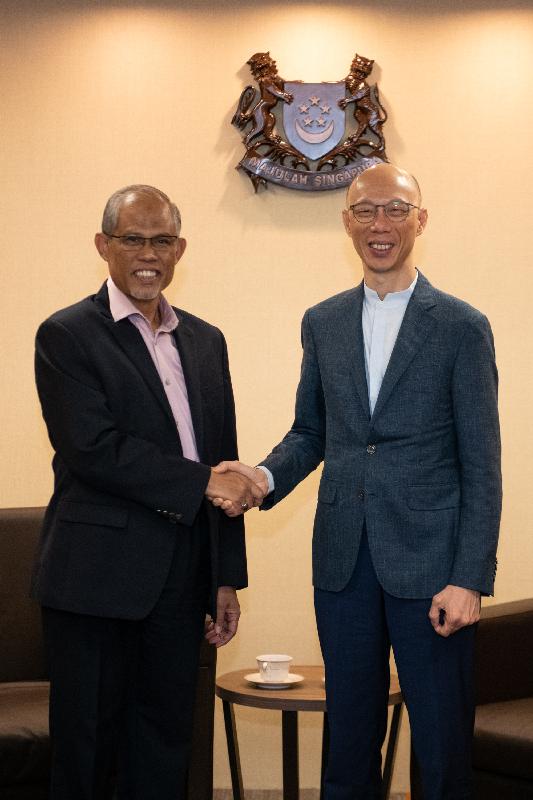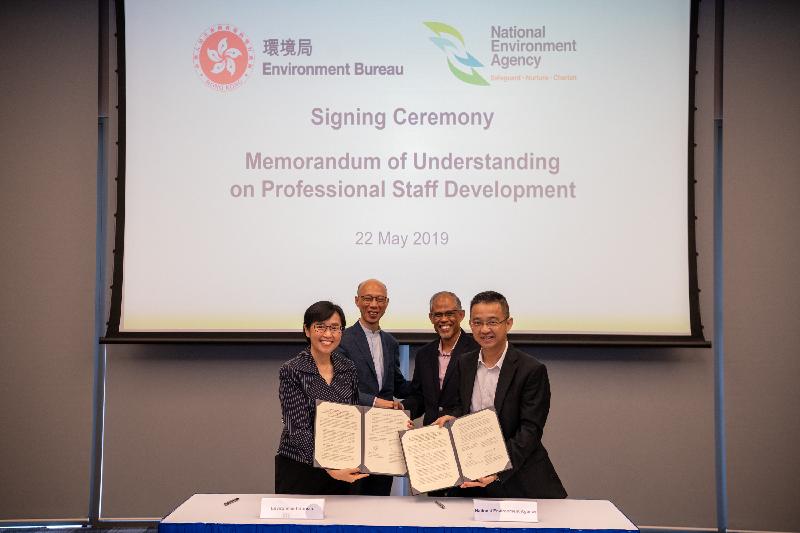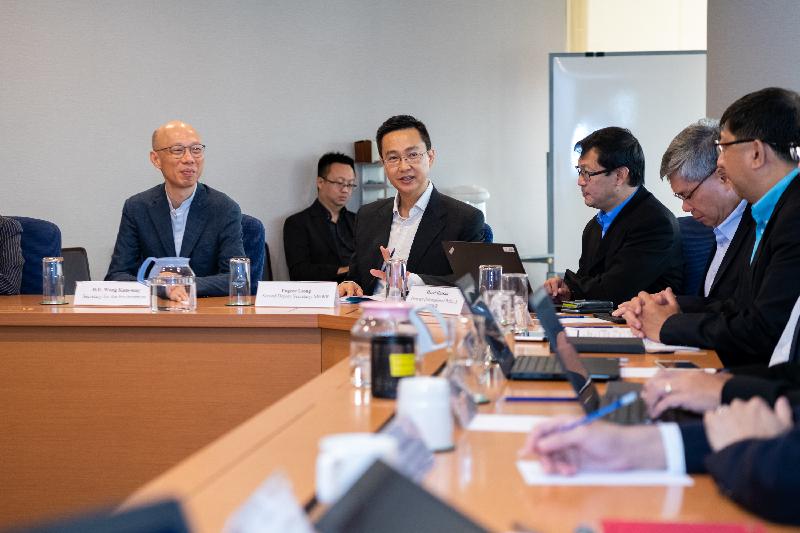Following is a question by the Dr Hon Kwok Ka-ki and a reply by the Secretary for Security, Mr John Lee, in the Legislative Council today (May 22):
Question:
For the purpose of handling a homicide case involving Hong Kong residents which happened in Taiwan last year (the Taiwan homicide case), the Government submitted to this Council last month proposed legislative amendments, which sought to enable the Government to transfer suspects under a case-based approach to jurisdictions (including Mainland China) with which Hong Kong has not entered into any long-term surrender arrangements. Some members of the public have pointed out that upon passage of the proposed amendments, Hong Kong residents may be sent, for trial, to places where a fair and open judicial system is lacking, thus depriving them of the human rights protection under the Basic Law. In this connection, will the Government inform this Council:
(1) whether it will transfer the suspect of the Taiwan homicide case to Taiwan only on the condition that the Taiwan side acknowledges that Taiwan is part of China; if so, whether it has sought confirmation from the Taiwan side on its acceptance or otherwise of this condition; if so, of the outcome; if the outcome is in the negative, how the Government handles the situation;
(2) as some Members of this Council have suggested that a sunset clause be made in respect of the proposed legislative amendments, or that the Offences against the Person (Amendment) (Extra-territoriality) Bill 2019 be enacted to handle the Taiwan homicide case, whether it has studied the feasibility of these options; if it has studied and the outcome is in the negative, of the justifications for that; and
(3) since the Government has, in response to the concerns of the business sector, decided earlier within a short period of time to reduce the categories of offences covered by the proposed legislative amendments from all the 46 categories set out in the Fugitive Offenders Ordinance to 37, whether the Government will withdraw the proposed legislative amendments in response to the strong opposition expressed by the 130 000 people who took to the street to join a march last month?
Reply:
President,
The Fugitive Offenders and Mutual Legal Assistance in Criminal Matters Legislation (Amendment) Bill 2019 proposed by the Government aims to amend the Fugitive Offenders Ordinance (FOO) and the Mutual Legal Assistance in Criminal Matters Ordinance (MLAO) to deal with two practical issues:
First, a homicide case happened in Taiwan in early 2018 involving a Hong Kong resident killing another Hong Kong resident, and the homicide suspect fled to Hong Kong. However, there is at present no legal provision to provide the mutual legal assistance or surrender the fugitive offenders to Taiwan.
Second, it is necessary to simultaneously plug the loopholes in Hong Kong's overall co-operation mechanism in criminal and juridical assistance matters, including the geographical restrictions, i.e. being inapplicable to Mainland China, Macao and Taiwan, and the impractical operational requirements under the existing ordinances.
There is a time issue under the first point because the suspect in the homicide case was sentenced to 29 months of imprisonment for four counts of money laundering and could be released as early as October this year. We hope to enact the legislation before his release so that he can be surrendered to Taiwan for the legal sanction that he deserves. As regards the second point, we have to address the shortcomings and loopholes of our existing mechanism for surrender of fugitive offenders. The Government's proposed amendments, which have been thoroughly and prudently considered, ensure that serious crime offenders cannot elude liability by taking advantage of a legal vacuum while protecting the safety of the public and the society.
My reply to the three parts of Dr Hon Kwok's question is as follows:
(1) The Hong Kong Special Administrative Region (HKSAR) Government has been communicating with the Taiwan side on its request in a pragmatic and respected manner, without any preconceived condition and with focus on the case itself only.
At present, there is no law in Hong Kong to deal with this serious murder case. So relevant laws must be enacted. We are aware that the Taiwan side has also agreed that the suspect should be brought to justice, and expressed that the door for negotiation on the mutual juridical assistance remains open. Under the mutual consensus that the suspect should face justice, we will continue to communicate with the Taiwan side patiently, explaining our legal vacuum and working hard to push forward the co-operation in the case to uphold justice.
(2) Some legislators proposed amending the Offences Against the Person Ordinance to extend the criminal jurisdiction of the courts of HKSAR, so that the courts may conduct trials for homicide offences committed by Hong Kong people abroad. There are also views suggesting that the Taiwan homicide case should be handled by means of a sunset clause.
First, handling the Taiwan homicide case by amending the Offences Against the Person Ordinance will result in a suspect being punished for an act that was not an offence under Hong Kong laws when it was committed, violating the provisions under Article 12: "No retrospective criminal offences or penalties" of the Hong Kong Bill of Rights Ordinance. Furthermore, we will also have to remove the geographical restrictions under MLAO to obtain evidence through co-operation. Even if restrictions are removed under MLAO, given that the crime took place outside Hong Kong, our prosecution authorities will face considerable difficulties in gathering evidence and summoning witnesses, and will not be able to ensure that such evidence will be accepted by Hong Kong courts. This may even give rise to legal problems pertaining to disclosure of information, thereby resulting in challenge for depriving the right of the defendant for fair trial. If he is acquitted in Hong Kong owing to the evidence failing to meet standard of proof, under the rule against double jeopardy, he will not be legally responsible for which he deserves and this situation will be undesirable.
As for handling the Taiwan homicide case by means of a sunset clause, this can only handle a single homicide case, not a second, third or any other future homicide cases and serious criminal cases, which will each entail enactment of new legislation. This proposal is simply unable to plug the loophole in the current surrender mechanism. We cannot and should not turn a blind eye to the loopholes in the current mechanism as this would make Hong Kong a shelter for offenders.
(3) We have undergone careful deliberation in drawing up the legislative proposals. I have just explained clearly the policy objectives, and the Government will not withdraw the bill. The HKSAR Government understands that the public has different views on the proposed legislative amendments, with supports and criticisms. The Government team has been devouring to explain the legislative proposals to the public and listening to the views from different sectors, during which we have come across many people who are not familiar with the provisions of the amendment bill and the actual operation of the regime. To this end, the Government will continue to explain to the public to enhance their understanding of the proposed amendments. On the other hand, having exchanged views and listening to the comments from various sectors of the community, the Government has refined the proposals in order to strike a reasonable balance by specifying the categories of offences to be handled to 37 items, covering those with the most serious or relatively serious nature, involving the upholding of justice and compliance with obligations under international conventions, etc. The considerations for excluding the 9 categories of offences are that they were seldom come across or have never been dealt with in the past surrender requests; as for the computer related offences, they have been shelved owing to the legal definition problem, which was not sorted out at that time.
President, I hope we can go back and stick to the original objective of surrender of fugitives. The United Nations (UN) passed a resolution in 1997, recognising that surrender of fugitives is an effective means in the joint effort against organised crimes and serious offences. The legislative amendments will not change our current regime for surrender of fugitive offenders under the cautious gatekeeping by the Government and the courts. It remains our key policy objective to enter into long-term co-operation agreements with different jurisdictions. Nevertheless, it takes as long as years on average to negotiate a long-term agreement. Should the Bill be passed, we could effectively supplement the inadequacy with case-based arrangement in the absence of a long-term agreement. In the existing FOO, we have made reference to the UN model treaty on surrender of fugitives, which is in compliance with the international practice with sufficient human rights and legal procedural safeguards. The concerned individuals have the rights to appeal, apply haebeas corpus and file judicial review up to the level of Court of Final Appeal. The proposed case-based surrender arrangement will be no longer applicable once a long-term agreement has been signed. The proposed legislative amendments will definitely not affect any long-term agreements in force.
The freedom and rights of Hong Kong is fully protected under the Basic Law. The proposed legislative amendments are in line with the Basic Law, and will definitely not affect the existing legal rights and freedom.
Thank you, President.


